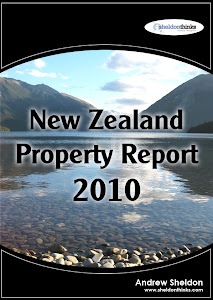Wow!!!! This is huge news. Labour and Greens together have raised minority party extortion to a new level. As far as I'm concerned, its great news because it highlights the nature of our useless 'representative' democracy. At stake is the spectre of a non-governing party threatening to subvert the existing government.
The Labour Party and Greens are saying in the midst of a power privatisation that they are going to change the rules of the game. An 'asset' is a capitalised stream of earnings. If you change the government, change the rules, you are going to change the expected earnings, or investors sense of vulnerability. The market is already uncertain about 'drought' (least of their worries), the closure of the Rio Tinto smelter, and now Labour and Greens are saying they will thwart the sale - in effect!
This effective curtails any hope of investment in the country (in anything substantive) as well as any hope of getting a sale of assets. Its the cheapest form of populism. Worse that 'minimum wages' and capital gains taxes by a country mile. Mind you, the policy was unpopular for National, and they were too arrogant to even deal with the broad-based apprehensions. This is of course just another reason for spurning 'representative' democracy. see and like us at www.meritocracy.org.nz. Join our mailing list.
This is actually worse that Julia Gillard's Mineral Resource Rent Tax (MRRT) because:
1. NZ needs the jobs and industry
2. Australia is a strategic and prized supplier of minerals
3. People kind of expect minerals to incur some rent
4. The mining industry was always very powerful, and thus a backflip was to be expected
5. The Australian Labor Party is just about to be dropped
The twisted aspect of this is that Labour and Greens just placed themselves in the wilderness....and ACT are looking more credible than ever. We have the socialists to thank for it....they really showed their true colours. Giving people sugar does not always work; most particularly when the market/media show you the implication of your decision-making. Shearer just retired permanently.
I guess we have to respect the 'honesty' (if not blatant stupidity) of the NZ Labour Party and the Greens Party. I guess they have locked in the support of the party faithful. But they might have just jettisoned any member or supporter with any sympathy or brain stem. To those people, I say welcome to ACT Party. John Banks, its leader is probably the only person with half a brain stem, and its a semi-impervious connection to God. So we live in hope. But you know; that's the price you pay for moral relativism. Get rid of representative democracy! Its not really 'democracy' in any meaningful sense. It does not give you 'real representative'. It takes from you power of attorney, vested in a person you will probably never meet or really know, who runs agendas you will scarcely understand because he is thinking full-time about thwarting your better judgement, and you are scarcely 'participating' to bearer scratch together a few brain cells. We need a meritocracy with a rational framework for political discourse. This is the only way that anyone can participate in a legislature. Visit us at www.meritocracy.org.nz. You want respect for your legitimate interests and rights - become a libertarian - we are not all Christians.
Asian property markets outperforming Japan Foreclosed Guide Philippines Property Guide
Profit from mining with Global Mining Investing eBook


